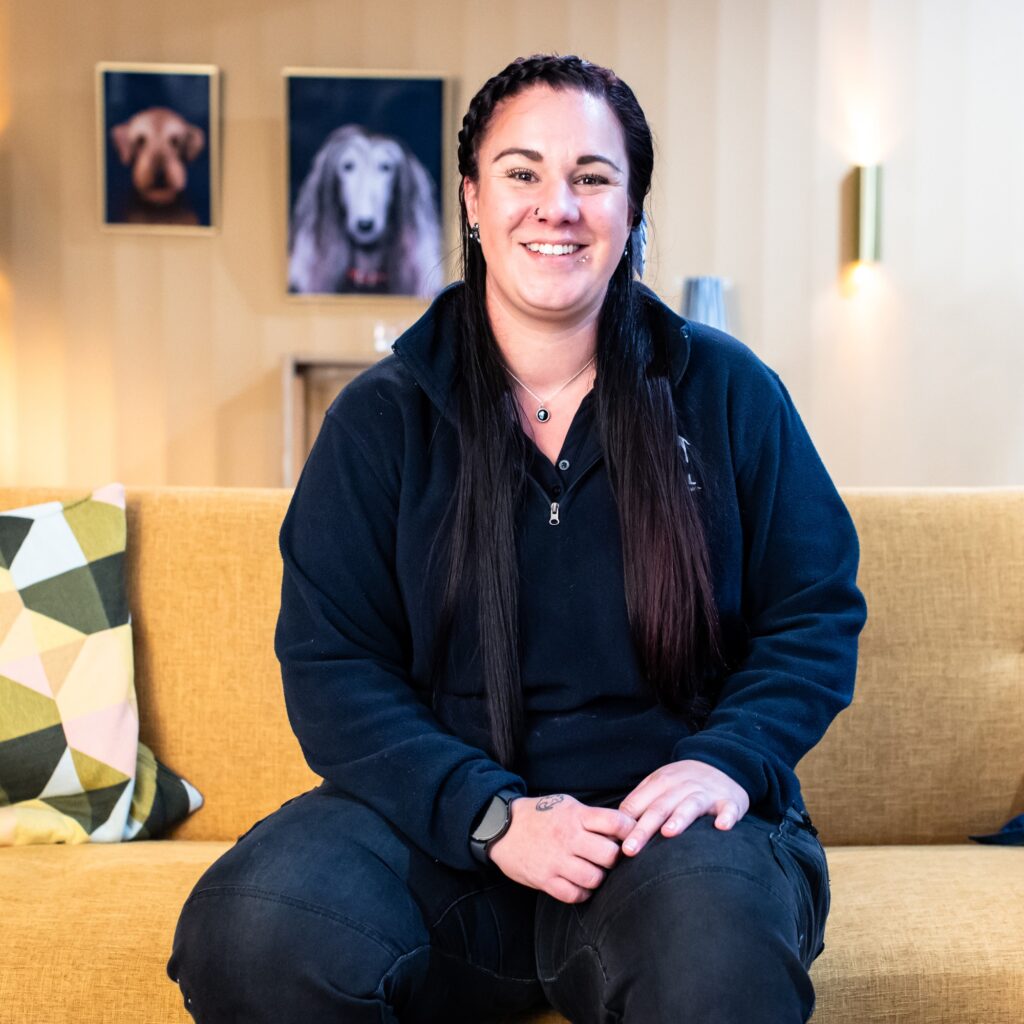
This season of The Dog House Australia features new Acting Shelter Manager/Matchmaker, Alisha. Although Alisha has been working for the Animal Welfare League for over a year, this is her first time appearing on the show. And, from what we hear, she’s already being followed by the paparazzi. We caught up with Alisha to chat about her all new su-paw-stardom!
What do you love most about The Dog House Australia and why did you want to be part of the matchmaker team?
I love watching people fall in love and find their next family member. I wanted to be part of the matchmaker team as I have a strong background in rehoming and wanted to assist in matching families and dogs.
What made you want to join the team at the Animal Welfare League?
AWL has a fantastic reputation in respect of their treatment of animals and their rehoming practises. My values strongly align with this organisation where I know the animals care and welfare is the highest priority.
What is your favourite thing about a dog? Do you have any pets?
I love dogs because they are selfless, non-judgemental and always live in the moment. They are a constant source of comfort, humour and support and are better friends than most people. I have two dogs, a 6-year-old Rottweiler named Winter, an 8-year-old American Staffy named Dahlia and an 11-year-old domestic short haired cat named Lillie.
What’s the most common misconception of adopting rescue dogs?
That they are damaged in some way or are unable to have their behaviour modified (or learn new things). This is categorically untrue, I have seen pedigreed dogs in shelters, as well as dogs who have gone on to work for the military and police professionally. I have also met a huge amount of exceptionally social and stable temperamented dogs in shelters.
What are the key things you look for when matching a dog to a prospective adopter?
That the dog is able to integrate safely and well into the family unit. I also want to ensure that owners are flexible and have a thorough understanding of the dedication it takes to move through the initial phases of rehoming and persevere whilst the animal is finding it’s feet in a new environment. It’s also important to address any ingrained expectations such as not wanting the dog to bark, or immediately be good on lead etc. Public need to recognise that it’s on us to show the dog clearly and consistently what we want from them and how the household is set up and run, dogs can’t automatically know this irrespective of their level of training prior to going into the home.
Is it true you can’t teach old dogs new tricks? What’s the best way to train a new rescue dog?
Absolutely not, in fact sometimes a slightly older dog is preferred, puppies lose focus and can get distracted very easily. The best way to train a new dog is to seek professional advice and understand how and when to reward desired behaviour. Dogs learn best when things are clear and consistent, and also work on not just our verbal cues, but tone and body language. It is essential everyone is on the same boat with how to train, what to say and how to position their body, e.g teaching a dog to sit is not helpful if one family member is saying ‘sit’, another is saying ‘sit down’, another is saying ‘down’, and another continues saying ‘sit’ even when the dog is already displaying the behaviour. This is confusing for the dog and often times this breakdown in communication from the human side is why dogs take a long time or are ‘unable’ to learn new behaviours.
We know you’re not supposed to have favourites, but what’s your favourite dog and why?
My favourite dog on the show was Bonnie, she was an absolutely beautiful, stable and happy dog. She was great with other dogs and all people, was very appropriate and sweet.